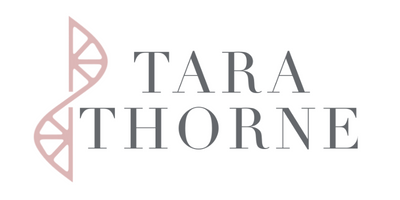Skin issues are usually multi-faceted and the root cause always needs to be addressed. This can often be hormonal imbalances for example; those suffering with HPA axis dysfunction will also likely suffer from acne. And an imbalance of androgens (having too many) will also produce acne. But what I’m going to focus on in this post is the clear association between gut dysfunction and skin issues. It doesn’t matter what the skin condition: psoriasis, eczema, rosacea, acne, dermatitis – all can usually be linked to some degree of gut dysfunction. In fact, one study found that 54% of acne patients have significant alterations to their gut flora. Other interesting correlations include:
- “Substance P” is a neuropeptide produced in the gut, brain and skin and it plays a role in skin conditions. Poor gut bacteria promotes the release of Substance P and probiotics have been shown to help with this problem.
- People with ulcerative colitis and crohn’s disease are more likely to have skin issues.
- A study showed that SIBO (Small Intestine Bacterial Overgrowth) is 10 times more prevalent in those with acne rosacea than in healthy controls. SIBO is linked to low stomach acid, which allows bacteria to travel up to the small intestine – where it doesn’t belong – from the large intestine.
So what can you do?
- Healing the gut is imperative. Taking collagen, bone broth, fermented foods – these things are all important. MSM and glutamine are two supplements that can also help to heal the gut.
- You must take a daily probiotic. There is evidence showing that probiotics improve skin conditions. Lactobacillus acidophilus and Bifidobacterium bifidum in particular have been shown to help.
- Hydrochloric acid is a big one for those who have low stomach acid, which shows up in a lot of people who have skin conditions. Here’s how to tell if you have low stomach acid: if you belch right after meals, get heartburn right after meals, have bad breath, bloating, trouble digesting proteins or have poor mineral absorption, which can be shown by low levels of B12 and iron. If this sounds like you, try taking a digestive enzyme with hydrochloric acid or some betaine hydrochloride with main meals and see if your symptoms improve.
- Eating an anti-inflammatory diet is important so be sure to include functional foods such as turmeric, ginger and lots of dark leafy greens.
- Stress management is HUGE. There is something called the gut/brain axis, which essentially is a communication path between our guts and our brains. Stress messes with our gut microbiota, which in turn affects our skin. Dealing with your stress is important for so many reasons, skin conditions being just one of them. Choose what works for you: yoga, meditation, journalling, walks with friends, hikes, etc. Make this a priority in your life.
- Acne is driven by IGF-1: Insulin Growth Factor. IGF-1 is high in dairy so avoid dairy if you suffer from acne. Having said this, most studies have been done on pasteurized dairy, not fermented so fermented dairy may not be associated with acne. This could well be due to the beneficial probiotics contained in the fermented dairy, so you might be okay with yoghurt. Try it out and see what works for you.
- Eat a whole foods diet and avoid sugar, refined and processed foods as well as trans fats.
- Drink a lot of water: half your body weight in pounds, in ounces – every day.
- Increase chlorophyll-rich foods. You can take liquid chlorophyll in water as a blood cleanser. Also be sure to bump up your dark leafy greens intake.
- Increase Essential Fatty Acids (EFAs) from chia, flax, cold water fish and fish or algae oil. Take fish oil at about 3,000mg /day. It’s an anti-inflammatory and skin conditions have an inflammatory underpinning.
- Consume selenium: 200 mcg daily in a supplement or include Brazil nuts in your daily diet.
- Vitamin D3 is what’s called an “anti microbial peptide” and can help with skin conditions. Be sure you’re getting enough (which a lot of people aren’t). Getting your vitamin D levels checked should be a mandatory blood test you ask your doctor for. Find out what your levels are and dose accordingly (usually 1,000 IUD is not nearly enough).
- Make sure you’re getting enough zinc. Zinc is involved in hormone activation, wound healing, immune system activity and tissue regeneration. Use zinc picolinate 50mg / day. It’s a good idea to do what’s called a “zinc tally test” or mineral test to make sure you’re deficient before supplementing.
At the end of the day the same rules apply: eat a wholesome real foods diet, reduce your stress, focus on liver-loving foods and be sure to exercise. This will always be a good start for any skin ailment you have. If however, you need a more personalized approach I encourage you to reach out so we can discuss your situation further and see if my tailored plans are right for you.



